This article was co-authored by Trudi Griffin, LPC, MS. Trudi Griffin is a Licensed Professional Counselor in Wisconsin specializing in Addictions and Mental Health. She provides therapy to people who struggle with addictions, mental health, and trauma in community health settings and private practice. She received her MS in Clinical Mental Health Counseling from Marquette University in 2011.
There are 15 references cited in this article, which can be found at the bottom of the page.
This article has been viewed 59,872 times.
Hypochondria is when a person, as a result of misinterpreting their normal bodily sensations or minor bodily complaints, believes they are suffering from a serious illness. It is no longer an official diagnosis in the DSM-5. Instead, people presenting with "hypochondria" may be diagnosed as having either illness anxiety disorder or somatic symptom disorder. [1] If left unchecked, hypochondria can be very damaging to your quality of life. With proper planning and care, you can prevent that from happening.
Steps
Changing Your Thoughts
-
1Seek therapy. Get help with a qualified mental health professional who can help you to work through your problems. People with hypochondria sometimes have underlying anxiety issues or depression that, if treated, might help the individual overcome their fears of illness.[2] A therapist can also help you to determine the cause of your fears and work through them in a safe environment.
- To find a qualified psychologist, try this site: http://locator.apa.org/
- A therapist can help you by using different therapy styles, such as cognitive behavioral therapy.
-
2Check your beliefs. One cause of hypochondria is a misunderstanding about how bodily sensations work and/or how pain signals work. This misunderstanding, or lack of knowledge, can lead people to misinterpret bodily signals and view them as more serious than they actually are.[3]
- So, ask yourself how much you have learned about the body and brain in your education. If you haven't learned much as part of your education so far, one way to help you overcome hypochondria may be to learn about basic bodily sensations.
Advertisement -
3Educate yourself about normal bodily sensations. Learn about normally occurring bodily sensations so you don't become scared that you are seriously sick when you experience them. It can be helpful to ask friends and loved ones what types of experiences they feel sometimes.
- For example, you might ask whether your friends have ever felt a heart palpitation (e.g., a fluttering of the heart of a feeling of the heart skipping a beat). You will likely find that many of your friends and loved ones have experienced this before, because heart palpitations are common.[4]
- In addition, you could use this resource, which shows the kinds of sensations people typically feel when they experience different emotions: https://www.pnas.org/doi/full/10.1073/pnas.1321664111
-
4Reduce sensation checking. You may find yourself thinking a lot about your bodily sensations in order to detect illness. Make a week long plan to reduce the number of checks you allow yourself gradually so that by the end of the week you are only checking your sensations a couple times a day or less.[5]
- For example, on the first day, you might allow yourself to check your sensations 30 times, on the second day you might reduce this to 22 times, on the third day 14 times, and continue to reduce that number over the rest of the week.
-
5Stop looking for reassurance. If you ask your friends and family to reassure you that you are not sick and this doesn't alleviate your worry, it may be best to stop engaging in this behavior. This is because it can backfire and cause you to actually worry even more.[6]
- This is because you may ask for reassurance more and more often in an attempt to get some benefit from it in the form of reduced anxiety, which just keeps your worries front and center in your mind.
- If your loved ones are constantly asking you how you are doing and their checking in on you is disrupting your attempts to get your illness anxiety out of your mind, kindly let them know this.
- You might say "I truly appreciate that you are concerned about me and that you care but I'm trying to think less about my concerns about illness, so it would be really helpful for me if you checked in on me only one day per week."
-
6Try progressive muscle relaxation. An effective way to reduce stress and increase well-being is a technique called progressive muscle relaxation. This may help you reduce your levels of anxiety more broadly, and your illness anxieties in particular. To perform progressive muscle relaxation: [7]
- Set aside 15 quiet minutes for yourself.
- Close your eyes and relax your body.
- Apply tension to a specific muscle group by flexing/squeezing it for five or so seconds. Be careful not to squeeze too tight and hurt yourself.
- Quickly relax the tensed muscle group while exhaling your breath.
- It is very important to focus intently on the difference in feeling between the tensed muscles and the relaxed muscles.
- After staying in this relaxed state for around 15 seconds, repeat the whole process with other muscle groups.
-
7Consider medication. Although medications are not typically prescribed directly for hypochondriasis, hypochondria tends to be associated with depression and/or anxiety disorders, which there are medications for. These medications may then indirectly improve symptoms of hypochondria. If you think you may benefit from treating depression and/or anxiety, explain the situation to your doctor.[8]
- Your doctor may decide to prescribe a Selective Serotonin Reuptake Inhibitor (SSRI) to help you.
- Be sure to always consult with your doctor before starting, stopping, or changing how you take a medication.
Changing Your Behavior
-
1Keep busy. If you're prone to hypochondria, don't give yourself time to think about whether or not you have a serious illness. Instead, keep your mind busy with tasks and goals you set for yourself. Studies have in fact shown that busy people tend to be happier than their non-busy counterparts. [9] If you are having trouble staying busy, you could:
- Donate your time to charity.
- Start a new hobby such as painting or sewing.
- Play video games or watch an episode of your favorite TV show.
- Take on an extra part-time job.
-
2Avoid symptom checking on the internet. Checking out your symptoms on the internet will only reinforce your fears and make you more scared. Symptoms are often highly non-specific and may mean any number of things; typically, the most common causes of whatever symptoms you have will be what you have because, well, it is statistically the most likely. Yet, if you spend time scouring the internet for what every little head pain might mean you may jump to the wrong conclusion.
- For example, there are a number of causes of headaches, most of them are overall harmless. Yet, if you read about brain tumors and headaches you will probably just scare yourself. Again, the chances of your headache indicating a brain tumor is extremely low.[10]
-
3Schedule time to worry. Don't try not thinking about it. The more you try to not think about something, the more you think about. Instead, schedule 30 minutes each day, when you're in a good state of mind and fairly relaxed, to walk yourself through all your symptoms and analyze both rational and irrational possibilities.
- You may have to change around the time for awhile to find the best fit for you. For example, may it is best for you to worry in the morning so you can get on with your day. Or, maybe your worrying thoughts build up over the course of the day and you find the most relief from scheduling worry time towards the end of the day.
-
4Stick with one good primary doctor. Changing doctors frequently will only bring you many different diagnoses, too many tests, and varying feedback.[11] Instead, find a doctor you can trust, who has a track record with friends and family or who has great reviews online.
- It helps if your doctor knows that you're inclined to fear the worse whenever you're sick or injured, whether real or believed to be real.
- Ask your primary doctor about whether you should be referred to a specialist rather than searching for one on your own. Your doctor is likely well-trained to decide whether or not a visit to a specialist is warranted.[12]
- Schedule appointments with your primary doctor as necessary. Be sure to explain your symptoms and worries and ask whether or not scheduling an appointment would be worthwhile.
-
5Stay healthy. Don't give yourself any reasons to think that you may be sick or will get seriously sick in the near future. Additionally, if you have an unhealthy lifestyle you may feel generally worse and misinterpret these feelings as indicating a serious health issue. So, treat your body well by:
- Getting plenty of sleep 7-9 hours, however much you need to feel fully rested.
- Getting plenty of exercise, aiming for around 30 minutes a day at least a few days a week.[13]
- Eating a balanced diet that includes fruits and vegetables, bread, pasta, or potatoes, proteins such as meats, fish, eggs, or beans, some dairy, and just a small amount of foods high in fat and/or sugar.[14]
- Avoid unhealthy habits such as excessive drinking of alcohol or caffeine.
- Also avoid smoking, which is a very unhealthy habit.[17]
-
6Increase behaviors that you avoid gradually. You may avoid certain behaviors because you think they will make you sick or lead to death. For example, if you are excessively worried about having a heart attack, you may find yourself avoiding exercise or sex. To overcome your illness anxiety, it can help to gradually increase your participation in the kinds of behaviors you avoid. When you engage in these behaviors and don't suffer any negative consequences, this can help to teach you that there really is nothing to fear.[18]
- By starting gradually, you face a minimal risk initially, so the task doesn't seem too daunting to try. For example, if you fear exercise because you think it will cause you to have a heart attack, you could first start out by going for a light walk. On the next day you could go for a brisker walk. On the day after you could jog slowly for 3 minutes. One the following day you could jog at a reasonably fast pace for 5 minutes, and so on.
References
- ↑ http://www.mayoclinic.org/diseases-conditions/illness-anxiety-disorder/basics/definition/con-20124064
- ↑ https://www.psychologytoday.com/articles/200912/hypochondria-the-impossible-illness
- ↑ http://www.mayoclinic.org/diseases-conditions/illness-anxiety-disorder/basics/causes/con-20124064
- ↑ http://www.health.harvard.edu/heart-disease-overview/skipping-a-beat--the-surprise-of-palpitations
- ↑ http://www.nhs.uk/conditions/hypochondria/Documents/Health%20Anxiety%20A4%20%202010.pdf
- ↑ http://www.nhs.uk/conditions/hypochondria/Documents/Health%20Anxiety%20A4%20%202010.pdf
- ↑ http://www.anxietybc.com/sites/default/files/MuscleRelaxation.pdf
- ↑ https://www.aafp.org/afp/2006/0315/p1049.html
- ↑ http://greatergood.berkeley.edu/article/item/busy_people_are_happy_people
- ↑ https://www.hopkinsmedicine.org/health/conditions-and-diseases/headache/headache-could-it-be-a-brain-tumor
- ↑ https://my.clevelandclinic.org/services/neurological_institute/center-for-behavioral-health/disease-conditions/hic-hypochondriasis
- ↑ https://my.clevelandclinic.org/services/neurological_institute/center-for-behavioral-health/disease-conditions/hic-hypochondriasis
- ↑ http://www.mayoclinic.org/healthy-lifestyle/fitness/in-depth/exercise/art-20048389
- ↑ https://www.nhs.uk/live-well/eat-well/
- ↑ https://www.drinkaware.co.uk/check-the-facts/what-is-alcohol/new-government-alcohol-unit-guidelines
- ↑ http://www.mayoclinic.org/healthy-lifestyle/nutrition-and-healthy-eating/in-depth/caffeine/art-20045678
- ↑ http://www.drinkingandyou.com/site/uk/toomuch.htm
- ↑ http://www.nhs.uk/conditions/hypochondria/Documents/Health%20Anxiety%20A4%20%202010.pdf



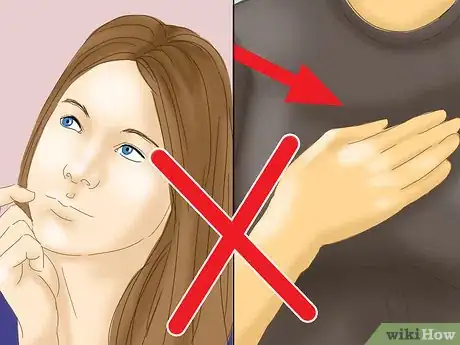
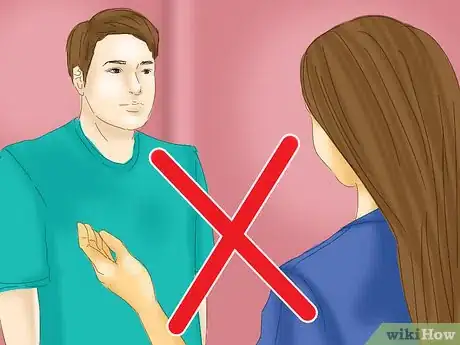

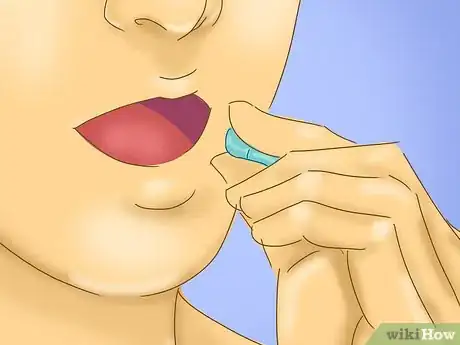




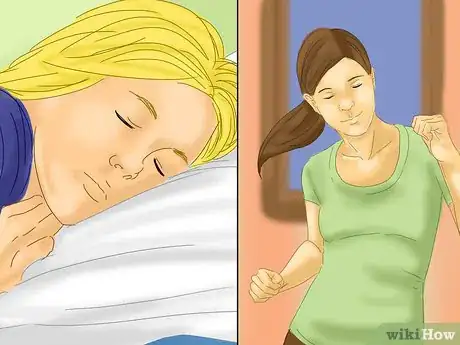
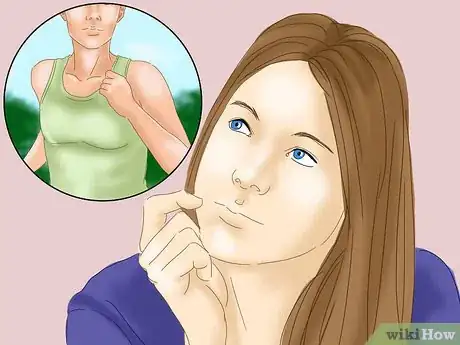












-Step-17-Version-2.webp)
















































Medical Disclaimer
The content of this article is not intended to be a substitute for professional medical advice, examination, diagnosis, or treatment. You should always contact your doctor or other qualified healthcare professional before starting, changing, or stopping any kind of health treatment.
Read More...